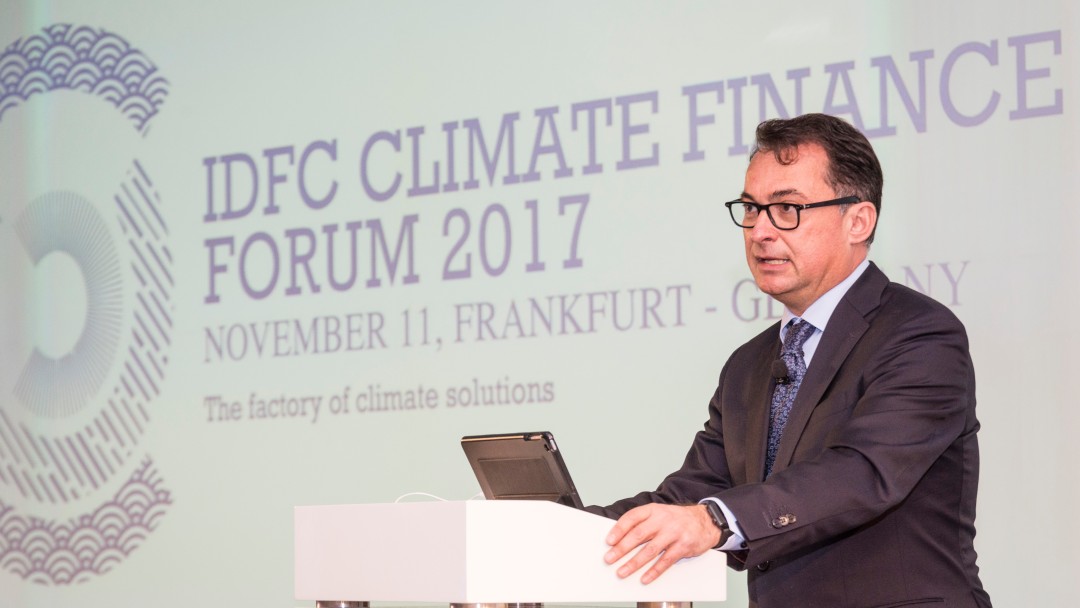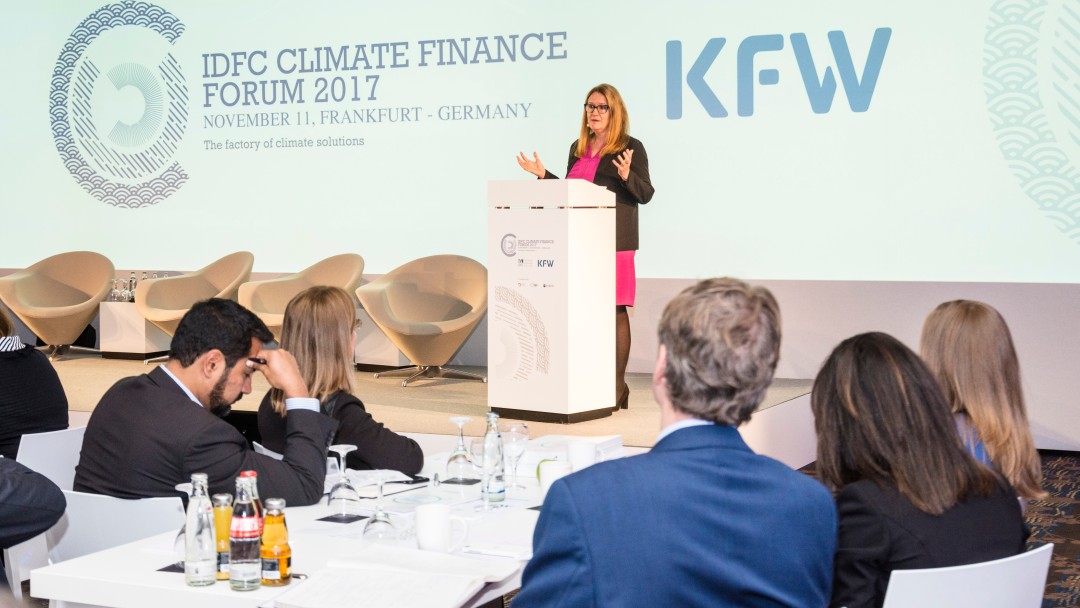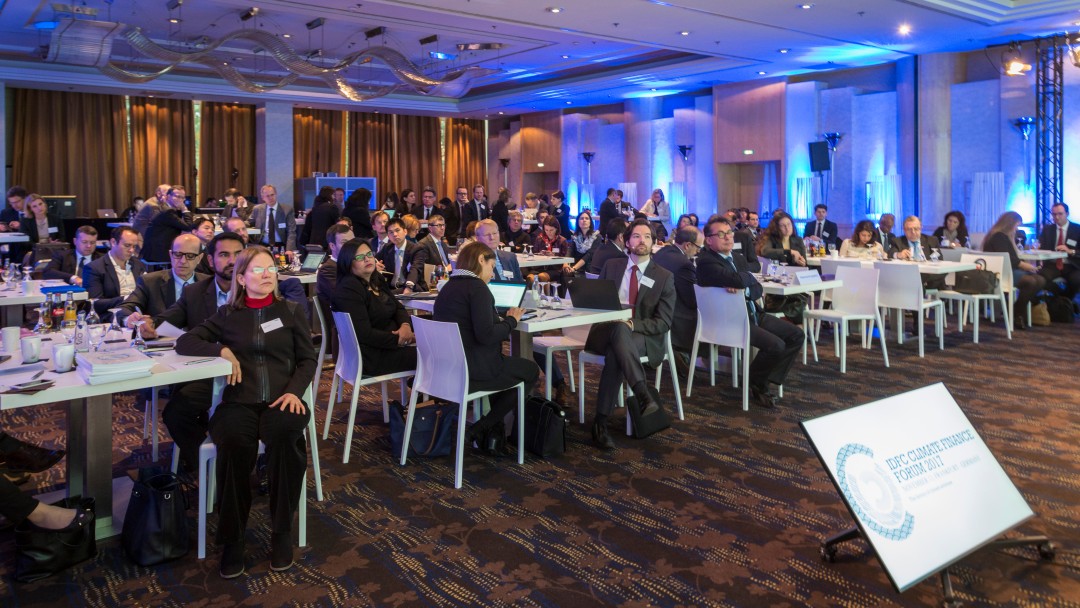News from 2017-11-14 / KfW Development Bank
Climate finance is increasing
IDFC Conference: Clear positive trend but more resources required

The global transformation to low carbon economies will require billions each year. Adapting to the consequences of climate change is also expensive and affects poor countries in particular. Climate finance - and thus development banks - play a decisive role since they can boost and accelerate change. Indeed, there has been a significant increase in funds flowing into climate-friendly technologies and climate-resilient infrastructure as revealed at a conference in Frankfurt: "There is a noticeable increase in Green Finance", participants concluded.
In order to advance climate finance, nearly two dozen national and regional financial institutions have been working together since 2011 under the auspices of the International Development Finance Club (IDFC). With a combined asset volume of over USD 3 billion, this group thus plays an important role in the global financial architecture. The IDFC organises an international meeting on the sidelines of each World Climate Change Conference to draw up a balance of the achievements and exchange views on hurdles, opportunities and further steps. This year’s conference was hosted by KfW in Frankfurt.
The conference was opened by KfW Executive Board Member Dr Joachim Nagel. In his remarks, Dr Nagel emphasised the crucial role played by KfW not only in Germany’s energy turnaround but also its importance as one of the key global financiers of sustainable infrastructure. In the past 10 years, the bank has provided over EUR 250 billion for climate mitigation and adaptation measures. KfW accounts for more than 80% of Germany’s international climate financing. Speaking to about a hundred guests from all over the world, Dr Nagel said he firmly promised "to maintain and possibly expand our extensive commitment".
This makes KfW one of the largest climate financiers globally but it also fits into a trend that is generally increasing. Rémy Rioux, the Director-General of the Agence Française de Développement (AFD) who is also the current chairperson of the IDFC, said: "we are experiencing a noticeable increase". According to him, "the market is turning towards sustainability".
An impressive amount of an average USD 400 billion has been injected into climate finance over the last two years. Approximately a third of this amount has come from public donors with the development banks contributing around 90% of it. Nevertheless, this is way below the required amount as pointed out in his conclusion: "We need more money for the tasks that lay ahead, in particularfor adaptation measures in developing countries". AFD will also increase its commitments over the coming years.

Ingrid-Gabriela Hoven, Director-General at the Federal Ministry for Economic Cooperation and Development (BMZ), also called for greater efforts. According to the World Bank, around 26 million people are falling back to poverty due to climate change. In order to prevent this figure from dramatically rising in the future, developing countries in particular should be sufficiently capitalised. She reaffirmed the climate goals undertaken by the international community even after the USA’s withdrawal from the Paris Agreement. According to the Agreement, around USD 100 billion are to be mobilised each year merely by the industrial countries from 2020 for climate protection and adaptation. Hoven was optimistic "that we will nevertheless make it".
In addition, Ms Hoven called upon the members of the IDFC to increasingly use their funds as an incentive to leverage private investment. "I expect you to develop new approaches and instruments to leverage private funds", as it can already be seen in climate insurance schemes, where one euro from public funds can generate private investments of up to 5 euros.
At the end of the day-long expert talks, participants took away four major findings: 1) Sustainable financing is no longer considered as exotic but is already part of the mainstream. 2) More resources are needed especially for adaptation measures. 3) The combination of public and private funds commonly referred to as blending is a crucial factor for increasing climate finance and its effects. 4) The announcement by the US government to withdraw from the Paris Agreement has not had negative impacts on climate finance goals so far but acted as an incentive for many to do more.


Share page
To share the content of this page with your network, click on one of the icons below.
Note on data protection: When you share content, your personal data is transferred to the selected network.
Data protection
Alternatively, you can also copy the short link: https://www.kfw-entwicklungsbank.de/s/enzBWrMC.BsAA
Copy link Link copied